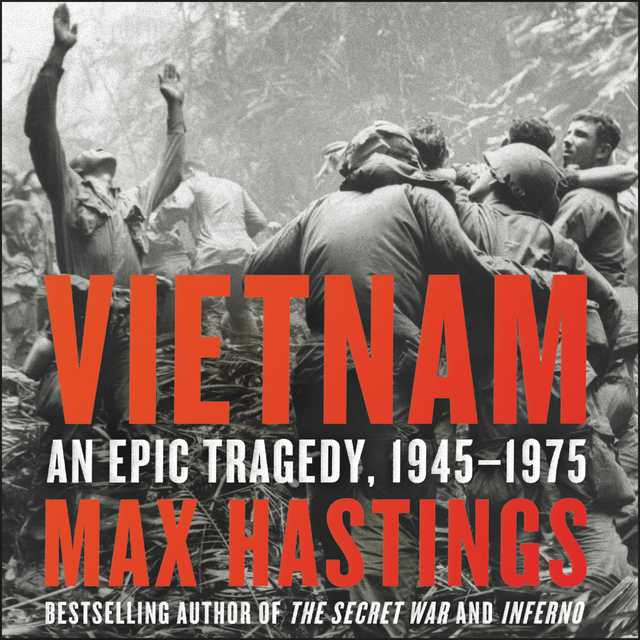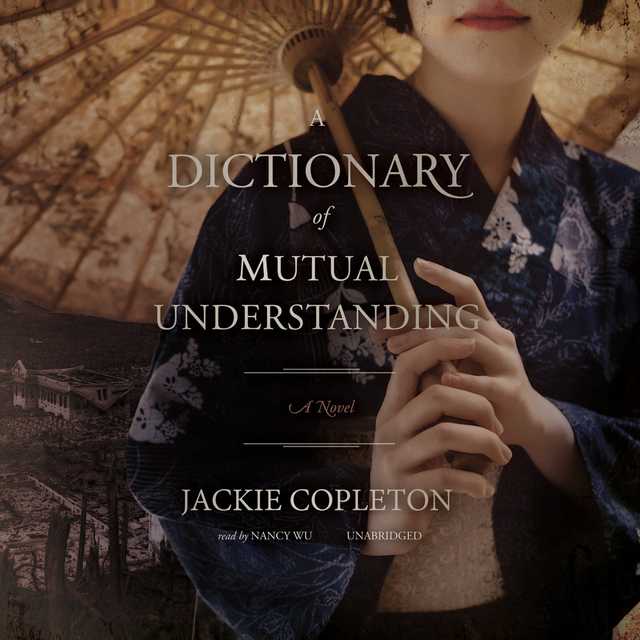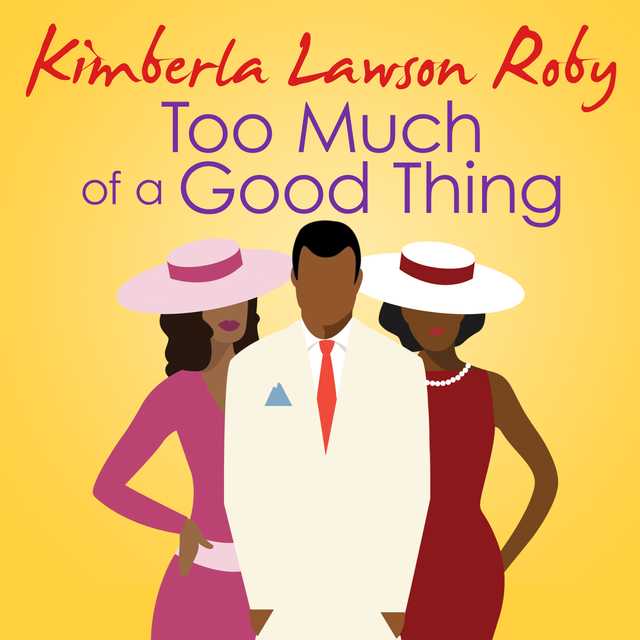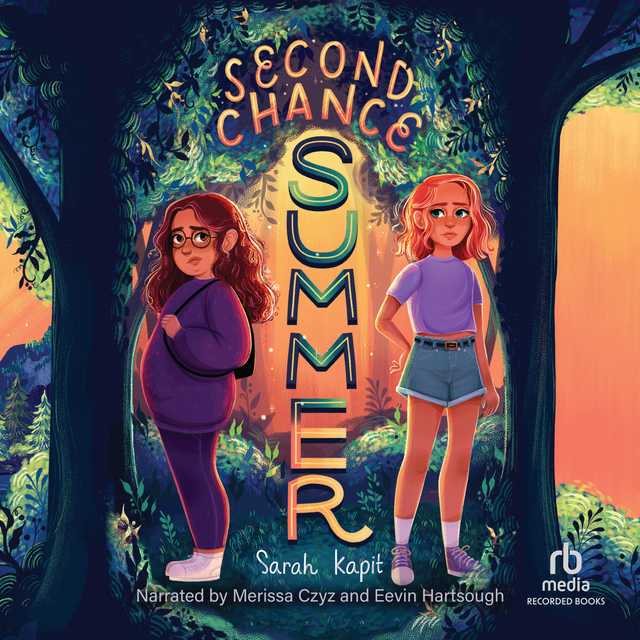Vietnam Audiobook Summary
An absorbing and definitive modern history of the Vietnam War from the acclaimed New York Times bestselling author of The Secret War.
Vietnam became the Western world’s most divisive modern conflict, precipitating a battlefield humiliation for France in 1954, then a vastly greater one for the United States in 1975. Max Hastings has spent the past three years interviewing scores of participants on both sides, as well as researching a multitude of American and Vietnamese documents and memoirs, to create an epic narrative of an epic struggle. He portrays the set pieces of Dienbienphu, the 1968 Tet offensive, the air blitz of North Vietnam, and also much less familiar miniatures such as the bloodbath at Daido, where a US Marine battalion was almost wiped out, together with extraordinary recollections of Ho Chi Minh’s warriors. Here are the vivid realities of strife amid jungle and paddies that killed two million people.
Many writers treat the war as a US tragedy, yet Hastings sees it as overwhelmingly that of the Vietnamese people, of whom forty died for every American. US blunders and atrocities were matched by those committed by their enemies. While all the world has seen the image of a screaming, naked girl seared by napalm, it forgets countless eviscerations, beheadings, and murders carried out by the communists. The people of both former Vietnams paid a bitter price for the Northerners’ victory in privation and oppression. Here is testimony from Vietcong guerrillas, Southern paratroopers, Saigon bargirls, and Hanoi students alongside that of infantrymen from South Dakota, Marines from North Carolina, and Huey pilots from Arkansas.
No past volume has blended a political and military narrative of the entire conflict with heart-stopping personal experiences, in the fashion that Max Hastings’ readers know so well. The author suggests that neither side deserved to win this struggle with so many lessons for the twenty-first century about the misuse of military might to confront intractable political and cultural challenges. He marshals testimony from warlords and peasants, statesmen and soldiers, to create an extraordinary record.
Other Top Audiobooks
Vietnam Audiobook Narrator
Max Hastings is the narrator of Vietnam audiobook that was written by Max Hastings
Max Hastings is the author of twenty-eight books, most about conflict, and between 1986 and 2002 served as editor in chief of the Daily Telegraph, then as editor of the Evening Standard. He has won many prizes, for both his journalism and his books, the most recent of which are the bestsellers Vietnam, The Secret War, Catastrophe, and All Hell Let Loose. Knighted in 2002, Hastings is a Fellow of the Royal Society of Literature, an Honorary Fellow of King’s College London, and a Bloomberg Opinion columnist. He has two grown children, Charlotte and Harry, and lives with his wife, Penny, in West Berkshire, where they garden enthusiastically.
About the Author(s) of Vietnam
Max Hastings is the author of Vietnam
More From the Same
- Author : Max Hastings
- The Secret War
- Inferno
- Winston’s War
- Catastrophe 1914
- The Abyss
- Publisher : HarperAudio
- Abraham
- American Gods [TV Tie-In]
- Dead Ringer
- House of Sand and Fog
- Prey
Vietnam Full Details
| Narrator | Max Hastings |
| Length | 33 hours 33 minutes |
| Author | Max Hastings |
| Category | |
| Publisher | HarperAudio |
| Release date | October 16, 2018 |
| ISBN | 9780062848147 |
Subjects
The publisher of the Vietnam is HarperAudio. includes the following subjects: The BISAC Subject Code is 20th Century, History, Modern
Additional info
The publisher of the Vietnam is HarperAudio. The imprint is HarperAudio. It is supplied by HarperAudio. The ISBN-13 is 9780062848147.
Global Availability
This book is only available in the United States.
Goodreads Reviews
Brett
January 02, 2023
This was an incredible undertaking. In my opinion, Max Hastings never wrote a bad history book, this one included. This was a full-scale history of Western involvement in Vietnam including both the French and the Americans. The history of colonial French Indochina and the reduction of foreign power was solidified by the failed police interactions from 1945 to 1954. The latter date was the defeat at Dien Bien Phu and the subsequent turbulence from 1954 to 1960 of increased insurgency and North Vietnamese agitation in the South. During this time Vietnam fell into a tumultuous time of multiple national leadership changes, reform programs, coups, internal hardships, and American involvement to contain the spread of communism under the Eisenhower administration. The 1960s saw escalation by both the JFK and LBJ administrations in attempts to show face to the world. Military advisors became defensive operations, clandestine operations, the extensive air campaign Operation Rolling Thunder, and the deployment of ground forces into offensive-combat roles.President Lyndon Johnson said long afterward about Vietnam, "I knew from the start that I was bound to be crucified either way I moved. If I left the woman I really loved—the Great Society—in order to get involved with that bitch of a war on the other side of the world, then I would lose everything at home...But if I left that war and let the Communists take over South Vietnam, then I would be seen as a coward and my nation would be seen as an appeaser and we would both find it impossible to accomplish anything for anybody anywhere on the entire globe." pg 197Hastings covered many aspects of the Vietnam War: social problems and protest back home, combat experiences and jungle warfare, political and military objectives, the Tet Offensive, Vietnamization and the Nixon administration, Russian advisors in North Vietnam, and the eventual North Vietnamese large-scale offensive into the South. Overall this was an excellent account of the of the Vietnam War. I would highly recommend this to anyone interested in Vietnam or someone who enjoys Max Hastings' writings. Thanks!
Tim
February 23, 2022
This is just the 3rd Vietnam war book I’ve read, after Vietnam: A History by Stanley Karnow, and The Best and the Brightest by David Halberstam. It offered some new things and was well worth the read.This book spends much time “on the ground”, describing what it was like during the battles, or the day-to-day life of specific people there – both the military and civilians, and both the Americans and Vietnamese. For the Vietnamese, he relates stories and the perspectives of both supporters and opponents of the Communists. Hastings also does a nice job not just talking about specific stories, but zooms out to connect this to what was happening with decisions made by leadership.One thing this book brought home, that I don’t remember as much from other books, was how brutally oppressive the Communists were. The repressions of the South Vietnamese government, and the brutality of some Americans, were widely discussed in the press, but the North Vietnamese actions were more hidden. I liked that the author did not just selectively pick stories to shoehorn them into a central narrative. The different stories revealed the complexity. There were some general trends the stories revealed, for instance the disrespect and lack of understanding the Americans had for the Vietnamese, and how it hampered the war effort. But not everyone was like this. And for the ones that were like this, hearing their backstories about the stress and confusion of being unwillingly thrown into the situation, and their frustration at the inexperience of the South Vietnamese army, sheds some light on how it happened.Another general trend the stories revealed was how bad the morale of American soldiers had gotten by the end of the war. I did not realize how fragging incidents were horrifyingly common, to the extent that officers regularly feared them and it impacted their decision making. Soldiers would openly defy their commanding officers, and not face any sanctions. It’s just mind-boggling to me that we continued slogging through the war when morale was this bad and we weren’t making any progress. The cynicism by Nixon and his team to stay in and draw the war out, even though they themselves believed it was futile, is infuriating. You can look at the numbers and see that Nixon did reduce troop levels and there were fewer deaths each year after 1968. But they also continued aggressive bombing campaigns that unnecessarily extended the war while not even improving their bargaining position during peace talks.The Nixon team’s primary goal was to just have some sort of “decent interval” from withdrawal to when Saigon would inevitably fall, that allowed them to save face. About 21,000 Americans died after 1968, during 5 years of war, in pursuit of a slightly better bargaining position that was never achieved.
Christopher
January 12, 2023
Max Hastings' Vietnam: An Epic Tragedy is one of the best one-volume syntheses of Vietnam War scholarship for a general audience. Hastings, who covered the war as a correspondent, is clear-eyed to the point of being utterly cynical about the war and the mythology that's been built up about it, on all sides. He has marginal sympathy for the Communist Vietcong and their North Vietnamese backers, noting that the brutality of Ho Chi Minh's state in Hanoi in its collectivization efforts and treatment of political prisoners was as severe in type (if not quite degree) as any other revolutionary regime. On the other hand, neither does he have much time for the succession of corrupt and brutal dictators that misgoverned South Vietnam, from the messianic Ngo Dinh Diem to the flamboyantly corrupt Nguyen Cao Ky and Nguyen Van Thieu, always more popular with his American backers than his won people. But Hasting's harshest judgments are left towards the United States, who for decades pursued a destructive policy that denied political and military reality in Indochina; who propped up dictators in Saigon only turn against them when they showed any degree of independence; who pretended to care about democracy and self-determination while denying the Vietnamese. Hastings is unsparing towards any of these players (let alone the colonialist French), and he seems to enjoy skewering mythology and tackling sacred cows, like authors Bernard Fall, Frances FitzGerald and Harrison Salisbury. Far from invincible, Hanoi's Politburo was often wavering and on the verge of collapse; American generals who insisted they could win the war if only Washington would unleash them (or reactionaries who blamed media coverage and protesters) were delusional, since their “bombing Vietnam to the Stone Age” tactics were antithetical to the war they were fighting; the Vietnamese people were less "instinctively anti-colonial" than pragmatic and proud, like people anywhere; overall, the common history of the war appears to be a tissue of unsustainable and self-aggrandizing myths. Hastings only shows sympathy for the Vietnamese people, oppressed by "twin tyrannies" in Hanoi and Saigon, terrorized by Vietcong or bombed ruthlessly by American and South Vietnamese troops, their right to self-determination ruthlessly denied on all sides; and occasionally, the American servicemen who were forced into a war they little understood and came to resent, though many committed indefensible war crimes. His conclusion that "neither side deserved to win" is harsh, but not unfair on the basis of evidence presented; his kaleidoscopic view of political cynicism, military folly and on-the-ground experiences of soldiers and civilians ensures that the book lives up to its grandiose subtitle.
Lark
November 07, 2018
This is a beautifully written, riveting story, a book that enlightened me in so many ways. Max Hastings never forgets that history is about human happenings--not movements, not ideologies, not guns or germs or steel. I was fourteen when the Vietnam War ended. My childhood memories are punctuated by memories of this war, and of protests against this war. What a joy, a relief even, to fill in the blanks about events that shaped my world before I could really understand them. The aspect I appreciate most about this book is the way it humanizes actors in the war who were just names to me before--in particular Ho Chi Minh. But even the smallest actors in this story are treated humanely by Hastings--for instance a story about two old women, selling peppers: American Howard Simpson watched exuberant parachutists tearing down a Saigon street in a jeep which crushed and scattered a row of bamboo panniers, filled with red peppers laid out to drain the sun. After the vehicle passed, two old women set to work painstakingly to collect the debris and salvage what they could of their ravaged wares. Here was a minuscule event amid a vast tragedy, yet Simpson asked himself, how could it fail to influence the hears and minds of its victims, those two elderly street sellers? An elegiac recreation of a time and a war that continues to echo on into the present.
MJ
March 08, 2020
While not a triumph of style, for a book that attempts to précis the entire Vietnam conflict across 650 fact-packed pages, you would find Hastings’s monster tough to trounce. The writer’s pellucid approach is perfect when seeking to suck on a mere information pipe, though what is missing are the sphincter-tightening descriptions of the average Vietnamese villager’s experience living a life of collateral damage for decades, or the perspective of the black grunt facing constant racism from an institutionally racist marine corp, headed by a sequence of institutionally racist presidents. These things are perhaps better left to novelists or memoirs, from whom Hastings cribs when required, so that criticism could be slapped away without snark. Hastings’s forensic detail and skill for concise, fuss-free summation makes this a tremendous, essential history, with requisite scorn heaped on the administrations trading in human lives for reasons of pec-flexing nationalism.
Boudewijn
July 08, 2020
British historian Max Hastings has written a book on the Vietnam War. A lengthy book (in my case: 33 hours of listening time), but nowhere does the book become boring. This was my first book on the Vietnam War, so a lot was new to me. He starts with Dien Bien Phu and ends with the fall of Saigon and its aftermath. By quoting from diaries and interviews, we get a good overview of both sides of the story. In this, we see the war as overwhelmingly through the eyes of the Vietnamese people, where both the US and North Vietnamese get their equal share of blunders and atrocities.
Claire
February 12, 2022
It's been a long time since I've taught about the war in Vietnam, and this big beast was the passive refresher I needed to get my head back in the game. Hastings analysis of the war in Vietnam is wide-reaching, thorough, and nuanced at every turn. It's a narrative that follows the scope of significant events, forces, and themes, but that is brought to life through the stories of individual experience. You'll be hard-pressed to find an overview as comprehensive as this.
Roy
December 14, 2021
This is a massive and a massively disheartening book about America’s most notorious war. Indeed, the subject is so immense (and I was so ignorant beforehand) that I find myself at a loss for what to say. I will, therefore, confine myself to a few comments on Hastings’s writing. This book is a milit
Creighton
April 05, 2021
Since the 2020 pandemic, I have had a lot of time to spend reading books, and this I have utilized to the full extent. Before I read this book, I had a basic knowledge about the war in Vietnam, but now that I have read this book, my understanding has widened, and I am apt to pick up other books on this war. One thing that really made me give this book a five-star rating was the fact that it has been one of the few books where at certain moments within it, I shed a tear, and for me, when a book can evoke emotions from the reader, it is a masterpiece. Max Hastings is a wonderful author, and I feel that I was foolish to only start reading his work this year. This was the first book I have ever read that Hastings has written, and I look forward to checking out his other works. He really did a wonderful job in this work; he didn’t have a bias for one side, instead, he called out the bluffs of both sides, and showed just how brutal the Vietnam war was. Being an American, I have learned about the Vietnam war through school, my own inclination to research, and through the stories I have heard from veterans I have met. One of my family members was drafted into Vietnam, and his experiences are something he refuses to talk about. My family used to forewarn me, to never ask him about it because he is known to get furious, because of what he had seen, and after reading this, I believe I can understand why. This book was pretty consistent with showing us the horrendous killings that both sides committed, and how a generation of young American men died for a cause that seemed noble and righteous, but now seems pure folly. There were examples of kind hearted soldiers, and then examples of soldiers who, went on killing sprees against innocent civilians. Too add to my paragraph above, I think in many ways the Vietnam war was a disaster to my country, and we still feel its effects today. As a Christian, I see how people today have thrown their morals out the window (due to their mistrust of authority figures and pre-1965 cultural norms) , but I have often asked myself “when did this all start?” and I have to look no further than the Vietnam war. As someone who has a mistrust of government, and politicians this book solidifies those beliefs. This book showed me how my nations government was no better than the communists in its pursuit of means to achieve its desired ends. Coups, corruption, CIA operations, a false flag to get involved in a war we couldn’t win, a president lying to the public about his bombings in Vietnam to win re-election; Generals, cabinet members, and the military industrial complex pushing for war all for the sake of profit and expansionism. But then again, men like McNamara, President Johnson, Westmoreland, and their peers didn't realize these facts, so I guess I must not criticize them too harshly. These same things are happening in this country today, and have been happening since.To all those who lost their lives in this conflict, I hope they are at peace now.
Chris
March 22, 2020
Still catching up on my Goodreads feed -- and what I've read. Max Hastings is among my very favorite historians. (His chronicle of the the last year of the Second World War in Europe, Armageddon, remains for me the definitive account of Germany in 1944/1945.) Vietnam is just as thorough, though it spans two decades, following the war from the mid-1950s through its end in the mid-1970s. If you enjoy history -- and military history -- this is a another great read for the quarantine.
James
December 29, 2018
I enjoyed this history very much. I've read other histories by Max Hastings and so expected this one to be comprehensive, analytical, full of insight, and wise. It is.This is narrative history, the story or events. His style is to combine the historical record of events with close snapshots of personal experiences, both those directly involved and those responsible for the planning and circumstances. But aside from the narrative, Hasting's brilliance is that he, better than most, has the ability to decode the meaning of events, the overarching history and takeaways from it in a couple of pages. These are the great kernels of insight and combinations of kernels making this one of the most balanced analyses of the war I've read. His perceptions approach the level of wisdom and is particularly acute in assessments of U. S. motivations and communist political vision. He seems to see everything clearly, from our our decisions to enter the war until our decisions to not intervene in North Vietnam's final offensive 10 years later. The ability of Hastings to make clear in a few paragraphs a complex subject others have devoted pages and even chapters to and yet still muddled, makes his achievement even more remarkable. He explains that victory was never a given for either side, and much of what he tells across 752 pages are variations of this uncertainty.It's not a military history that details the maneuvering of battalions so much as a history of decisions. And their impact. Obviously many pages are spent on such pivotal moments as 1954's Dienbienphu or 1968's Tet Offensive, or even events more shadowed, like the North Vietnamese cleansing Hue of its intellectual class. These are familiar topics. But Hastings has written of well-known, well-traveled events and made them engaging and new. It's in his telling of each phase or step of his long history that he best displays his skill at moving from the broad overview of, say, strategic planning down to individual experience. He describes and analyzes it deeply at the same time. Understanding that history is the interpretation of events directed by personalities, he includes the personal perceptions of those involved, and of both sides.As I say, a familiar story. I've read quite a lot of the war's history and yet still came across subjects which are neglected in other writings. Aware that media coverage and the antiwar dissent were largely responsible for negatively impacting the morale of our units in the field, I found fascinating Hastings's rather thorough discussion of the topic. He discusses the moral implications of almost every aspect of the war. I appreciated his views. In fact, this was most interesting to me because a week ago I'd finished Henry Kissinger's book Ending the Vietnam War in which he admits the immorality of abandoning South Vietnam to eventual defeat by the North while also deserting a cause in which we lost 58,000 lives. I thought it interesting that Hastings agrees with this assessment while also savaging Kissinger for his duplicitous role as a peace negotiator and National Security Advisor intent on getting America out of the war rather than bringing peace to South Vietnam. He tells us the story of a Marine who served in Vietnam and later became a general commanding troops in the 1st Gulf War who says the great lesson he carried home from Vietnam was "Tell the truth." Hastings does, I think.I was impressed with the book's closing chapter, "Afterwards," the analysis of results. What we're left with today is that tragic loss of millions of lives, including 58,000 Americans, the damage to America's image and credibility, and the ultimate bankruptcy of communism. What we have today is an austere communist Vietnam now, 43 years later, even more under the huge cultural influence of the west. And that cultural center of gravity is in the South where the name Ho Chi Minh City is steadily losing ground to the old name, Saigon. It's in his "Afterward" that Hastings explains what I've felt for a long time, that Korea and Vietnam were the same geopolitical situation. The final point made is that of Truong Huy San, who was 13-years old when the war ended. He tells us that South Vietnam "has proved to be the historic victor because its values increasingly dominate the country." Obviously I like this book because Hastings shares many of my own views.
Tariq
July 06, 2019
The north Vietnamese had two distinct advantages on the South, ideology and complete control of the press. They were able to use effective propaganda to galvanise their population against a far richer and better equipped south Vietnamese enemy. The french and American forces neither had any ultimate goal nor could control their own press, a press which pounced upon any infringement of their own army as opposed to the North who were able to control all their propaganda because they controlled their own press. The french and the Americans also considered Vietnamese far less superior, therefore expected the south to fail after they left. They also wanted to punish the Vietnamese by leaving the south to be pulverised by the north as they blamed the south for their losses.
A.L.
May 23, 2019
The subtitle says it all: An Epic Tragedy. I learned so much from this book, not only about what happened, but also about the how and the why. If you want the Vietnam War in one volume, this is a good choice. Educational, engaging, and narrated by a skilled reader (a must for a book almost 34 hours long). I liked how Hastings organized the book. He went roughly chronologically, but also thematically. Often chapters about the fighting on the ground were followed by something else—the air war, how the war affected the US, etc. I feel like the ground war was covered, but it was also broken up and that made for a better reading (or listening) experience, in my opinion.In hindsight, it’s easy to say the US probably shouldn’t have gotten involved. We went in, in part, to protect South Vietnam from a communist takeover. In the end, the entire country fell under communist control anyway. US involvement didn’t prevent anything, it just prolonged the war and the prolonged war caused so much suffering and so many deaths. But those who were making the decisions didn’t have the gift of hindsight. They saw things through the light of the Munich Accords and WWII, and an assumption that China and the Soviet Union were united and needed to be stopped. It’s a tricky question. Was it right to go in? Would success (or at least a standoff similar to North/South Korea) have made it a right policy? Did failure make it wrong?Some of the themes I found interesting and worth noting in this review: South Vietnam’s government was far from model. North Vietnam was worse, but they were better at hiding their atrocities, so most people didn’t know how bad they were. South Vietnam’s government, on the other hand, had all its flaws exposed for the world to see.Far too often, US presidents acted not in the best interests of the Vietnamese or even of the Americans, but based on the election cycle and acting (or postponing action) to help their party stay in power. There were problems with our armed forces (fragging, drugs, mistreatment of civilians), but there was also courage and sacrifice. The courage displayed by rescue helicopter crews in particular stood out. Other countries, notably Australia, were also involved, and their involvement stirred up mixed reactions in their countries too.It’s extremely hard to fight wars against infiltrating guerillas who keep coming and coming and coming. It’s also hard to fight against governments (like North Vietnam and most other communist countries) that don’t care all the much about their own people getting killed.Overall, 4 plus stars for this informative, well-written book. It's my first by Hastings, but I doubt it will be the last.
Most Popular Audiobooks
Frequently asked questions
Listening to audiobooks not only easy, it is also very convenient. You can listen to audiobooks on almost every device. From your laptop to your smart phone or even a smart speaker like Apple HomePod or even Alexa. Here’s how you can get started listening to audiobooks.
- 1. Download your favorite audiobook app such as Speechify.
- 2. Sign up for an account.
- 3. Browse the library for the best audiobooks and select the first one for free
- 4. Download the audiobook file to your device
- 5. Open the Speechify audiobook app and select the audiobook you want to listen to.
- 6. Adjust the playback speed and other settings to your preference.
- 7. Press play and enjoy!
While you can listen to the bestsellers on almost any device, and preferences may vary, generally smart phones are offer the most convenience factor. You could be working out, grocery shopping, or even watching your dog in the dog park on a Saturday morning.
However, most audiobook apps work across multiple devices so you can pick up that riveting new Stephen King book you started at the dog park, back on your laptop when you get back home.
Speechify is one of the best apps for audiobooks. The pricing structure is the most competitive in the market and the app is easy to use. It features the best sellers and award winning authors. Listen to your favorite books or discover new ones and listen to real voice actors read to you. Getting started is easy, the first book is free.
Research showcasing the brain health benefits of reading on a regular basis is wide-ranging and undeniable. However, research comparing the benefits of reading vs listening is much more sparse. According to professor of psychology and author Dr. Kristen Willeumier, though, there is good reason to believe that the reading experience provided by audiobooks offers many of the same brain benefits as reading a physical book.
Audiobooks are recordings of books that are read aloud by a professional voice actor. The recordings are typically available for purchase and download in digital formats such as MP3, WMA, or AAC. They can also be streamed from online services like Speechify, Audible, AppleBooks, or Spotify.
You simply download the app onto your smart phone, create your account, and in Speechify, you can choose your first book, from our vast library of best-sellers and classics, to read for free.
Audiobooks, like real books can add up over time. Here’s where you can listen to audiobooks for free. Speechify let’s you read your first best seller for free. Apart from that, we have a vast selection of free audiobooks that you can enjoy. Get the same rich experience no matter if the book was free or not.
It depends. Yes, there are free audiobooks and paid audiobooks. Speechify offers a blend of both!
It varies. The easiest way depends on a few things. The app and service you use, which device, and platform. Speechify is the easiest way to listen to audiobooks. Downloading the app is quick. It is not a large app and does not eat up space on your iPhone or Android device.
Listening to audiobooks on your smart phone, with Speechify, is the easiest way to listen to audiobooks.






























